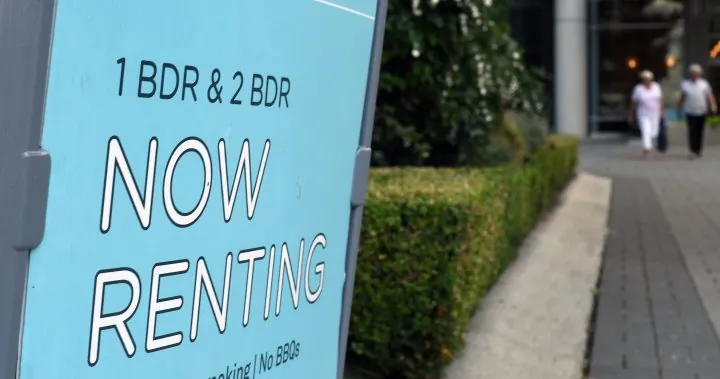
Canada's Rental Market Takes a Breather: What’s Behind the Slowdown?
2024-10-09
Author: Charlotte
Canada's Rental Market Takes a Breather: What’s Behind the Slowdown?
In a remarkable shift, Canada is witnessing its slowest rate of rent growth since October 2021, according to a new National Rent Report by Rentals.ca and Urbanation. Average asking rents across the country reached approximately $2,193 per month in September, revealing the tightrope the rental market is walking in the current economic climate.
One major factor driving this slowdown is the significant decrease in international student enrollments, which have fallen by nearly half from their record highs. This drop has been most pronounced in provinces like British Columbia and Ontario, where increased rental demand had previously pushed prices to new heights. Shaun Hildebrand, the president of Urbanation, highlighted this trend, stating, “The significant decline in foreign student enrollments has led to a notable deceleration in rent increases across Canada.”
Despite the recent slowdown, rents are still substantially higher than they were just a few years ago. On average, rental prices are now 13.4% more than they were two years ago and up a staggering 25.2% over the past three years.
In a closer look at specific markets, rents for condominiums showed an overall decline of 1.7%, bringing the average to $2,296 in September. Notably, Vancouver experienced a sharp drop, with average condo rents decreasing by 13.6% to $3,232. In Toronto, the average price also fell, down 7.7% to $2,745. Calgary witnessed a lesser decline, with its condo rents decreasing by 3.4% to an average of $2,060.
In stark contrast to these declines, purpose-built apartments saw an increase, with an average rent of $2,138—reflecting a 5.4% annual growth. Studio apartments were particularly in demand, showcasing an impressive growth rate of 11.1%.
Provincial discrepancies are evident as well. Ontario and British Columbia were hit hardest, with rent declines of 4.3% and 3.2% respectively for purpose-built and condominium apartments. Meanwhile, Saskatchewan emerged as an outlier, experiencing a remarkable 23.5% hike in rents—making it the fastest-growing province in terms of rental costs.
Among Canada’s largest cities, several experienced notable rent drops. Vancouver has seen a staggering 10 consecutive months of decreasing rents, down 9.5% year-over-year to an average of $3,023. Toronto followed suit with an 8.1% decrease, averaging $2,668. Both Calgary and Montreal reported a modest 2% decline in rental prices.
Interestingly, Ottawa was one of the few cities bucking this trend, posting a slight rent increase of 0.8% to reach an average of $2,220.
Moreover, shared accommodations are becoming pricier, with rents for shared rooms climbing 6.9% annually, averaging $1,009 in September.
As the rental landscape continues to evolve, many are left wondering: what will this mean for prospective renters and the housing market at large? With ongoing fluctuations and shifting demands, only time will tell how these trends will unfold in the coming months.









 Brasil (PT)
Brasil (PT)
 Canada (EN)
Canada (EN)
 Chile (ES)
Chile (ES)
 España (ES)
España (ES)
 France (FR)
France (FR)
 Hong Kong (EN)
Hong Kong (EN)
 Italia (IT)
Italia (IT)
 日本 (JA)
日本 (JA)
 Magyarország (HU)
Magyarország (HU)
 Norge (NO)
Norge (NO)
 Polska (PL)
Polska (PL)
 Schweiz (DE)
Schweiz (DE)
 Singapore (EN)
Singapore (EN)
 Sverige (SV)
Sverige (SV)
 Suomi (FI)
Suomi (FI)
 Türkiye (TR)
Türkiye (TR)